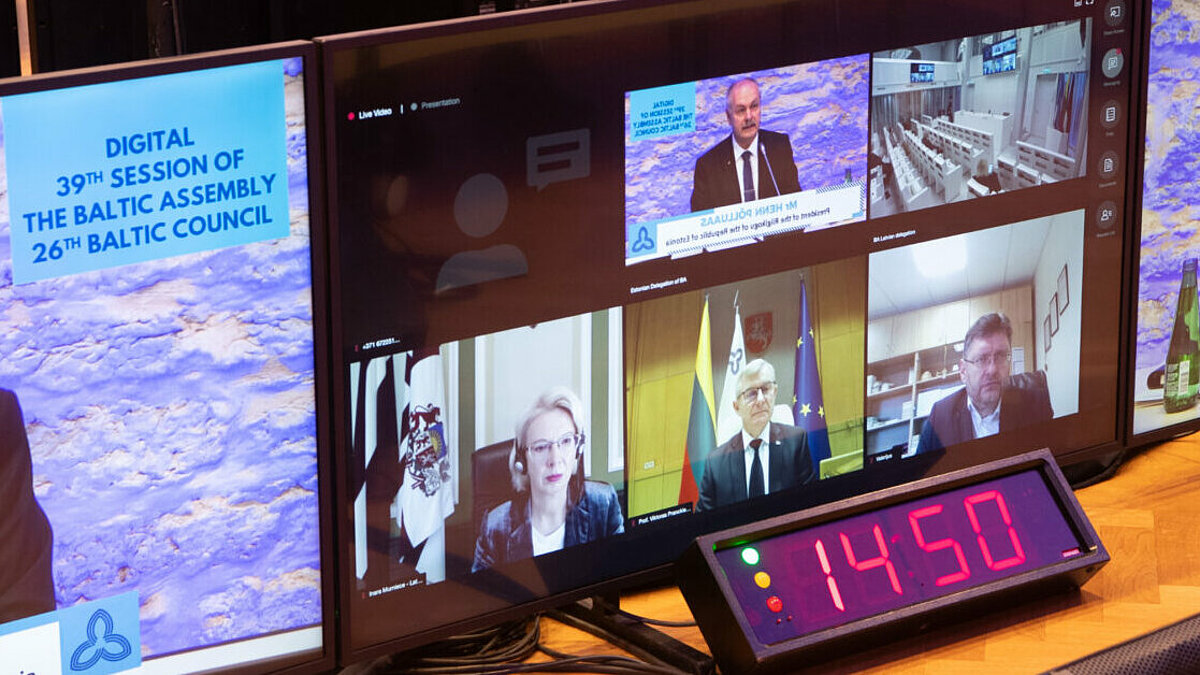
Estonia as the holder of the presidency of the Baltic Assembly organises the meetings of the Presidium, the Budget and Audit Committee and the Consultative Council of the Baltic Assembly as videoconferences today. The impact of the coronavirus on the economies and cooperation of Estonia, Latvia and Lithuania will be discussed. The decisions of the committee meetings held during Estonia’s presidency and the priorities of the Lithuanian presidency next year will also be in the focus.
President of the Baltic Assembly (BA) and Head of the Estonian Delegation Aadu Must said that the coronavirus had brought out the bottlenecks in the so far excellent cooperation of the three countries. "For example, at the onset of the crisis, we were not able to ensure timely exchange of information or jointly coordinate the emergency measures in our region. Fortunately, we have overcome these challenges by now, but after the low contagion rate in summer, the current situation is unclear and unpredictable. Therefore, we have to learn to live together with COVID-19 and find solutions to cope with the crises caused by it," Must said.
Head of the Delegation added that Estonia had done a very good job in presiding the work of the BA under the coronavirus conditions. "We managed to make our work digital quickly and smoothly, nothing remained undone and with that, we even set an example to others," Must said.
Deputy Head of the Estonian Delegation to the BA Johannes Kert noted that the Baltic States had managed to learn a lot from the current crisis. According to him, the he most valuable lesson learned is that when countries work together, they are able to effectively contain the virus and mitigate the crisis. "Therefore, it is extremely important to continue on the same path. One of the coordination measures that could be implemented in the Baltic States is mutual assistance and coordination in the field of disaster prevention, preparedness and response," Kert said.
At present, when the security situation is becoming more tense, coordinated activities of the Baltic States in the field of security are becoming increasingly important in Kert’s opinion. "Coordinated functioning of the defence procurements system would give more security for the resources contributed. We need to continue what we have started in this important sphere," Kert added.
This spring, the Economic Affairs Committee of the Riigikogu (Parliament of Estonia) asked the Foresight Centre of the Riigikogu to analyse the economic and social implications of COVID-19. Within the framework of the research, the Foresight Centre in cooperation with the University of Latvia think tank LV PEAK and the Government Strategic Analysis Centre of Lithuania STRATA prepared an overview of the impact of COVID-19 on economy and social sphere in the Baltic States. This document will be presented today.
Chairman of the Economic Affairs Committee and member of the Estonian delegation to the BA Sven Sester pointed out that COVID-19 had influenced not only healthcare systems and economies, but also the way the people live and work, their physical and mental welfare and domestic situation. In his opinion, continuation of the crisis will create an excellent opportunity for the increase of public sector investments due to direct necessity, and bring about wider cooperation with the private sector. "We have already seen how rapidly and flexibly the state and businesses responded to the crisis, and by learning from these, sometimes, undoubtedly, very painful experiences, we will be able to take smarter steps in the future. Digitalisation and new business models are the keywords here," Sester said.

 CONFERENCE
CONFERENCE